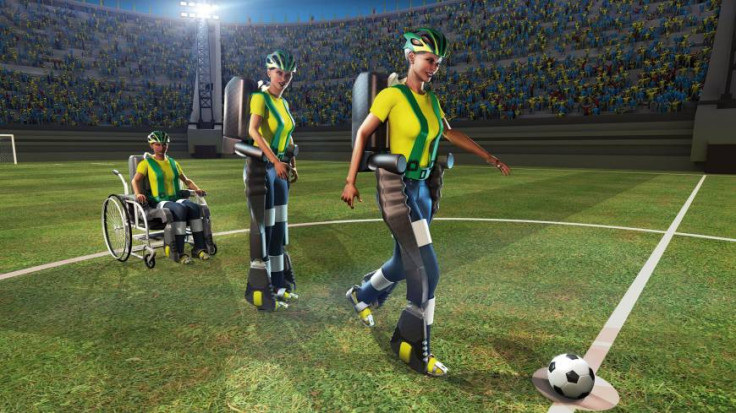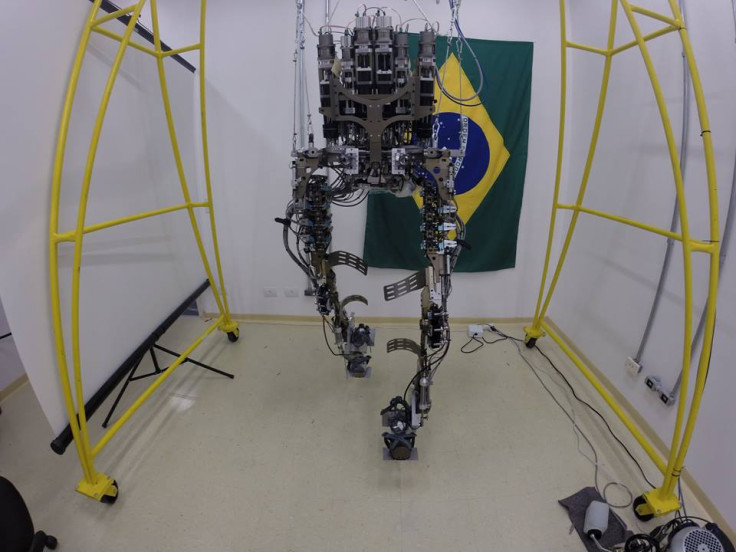Brazil World Cup to be Kicked off by Paraplegic in Mind-Powered Suit

Three paraplegics will kick off the World Cup in a special way on Thursday when they don a mind-powered suit, rise from their wheelchair and kick a football using "brain power."
The suit was devised by Brazilian doctor Miguel Nicolelis, who has been researching brain activity as part of the international "Walk Again Project". Metal braces have been designed to support the Brazilian teenager - whose identity won't be revealed until the event - and bend his or her legs.
It's the first time an exoskeleton has been controlled by brain activity and offered feedback to the patients
What makes the suit remarkable is that the robotic limbs will be controlled by the young person using their brain power alone. Electrodes attached to their head will send signals to a computer incorporated into the suit, turning thought into movement: and allowing the teenager to kick the ball.
The device is called the Bra-Santos Dumont, incorporating the three-letter sporting code for Brazil and Brazilian inventor Alberto Santos-Dumont, who in 1901 flew a dirigible round the Eiffel Tower. The suit is the result of years of research, in which Dr Nicolelis experimented with "reading" the brains of monkeys.

"It's the first time an exoskeleton has been controlled by brain activity and offered feedback to the patients," says Nicolelis, who sounds slightly nervous at leaving the laboratory for what will surely be one of the most high-profile robotic experiments ever seen: 65,000 spectators will be in Sao Paulo's Corinthians Arena and up to a billion may be watching around the world.
"Doing a demonstration in a stadium is something very much outside our routine in robotics," admits Nicolelis. "It's never been done before."
Some critics have claimed Nicolelis relies too much on publicity and obtains more than his fair share of funding to carry out his pioneering research, but he shrugs off the criticism.
"I don't see anything wrong with demonstrating a technology for the whole world that has a humanitarian objective and was paid for by civil society."
Nicolelis says the years of work and money paid off on 24 April, when a young paraplegic first walked using the Bra-Santos Dumont. Now the eyes of the world will be on Sao Paulo to watch what could be a small kick for man - and a very special goal for mankind.
© Copyright IBTimes 2025. All rights reserved.






















